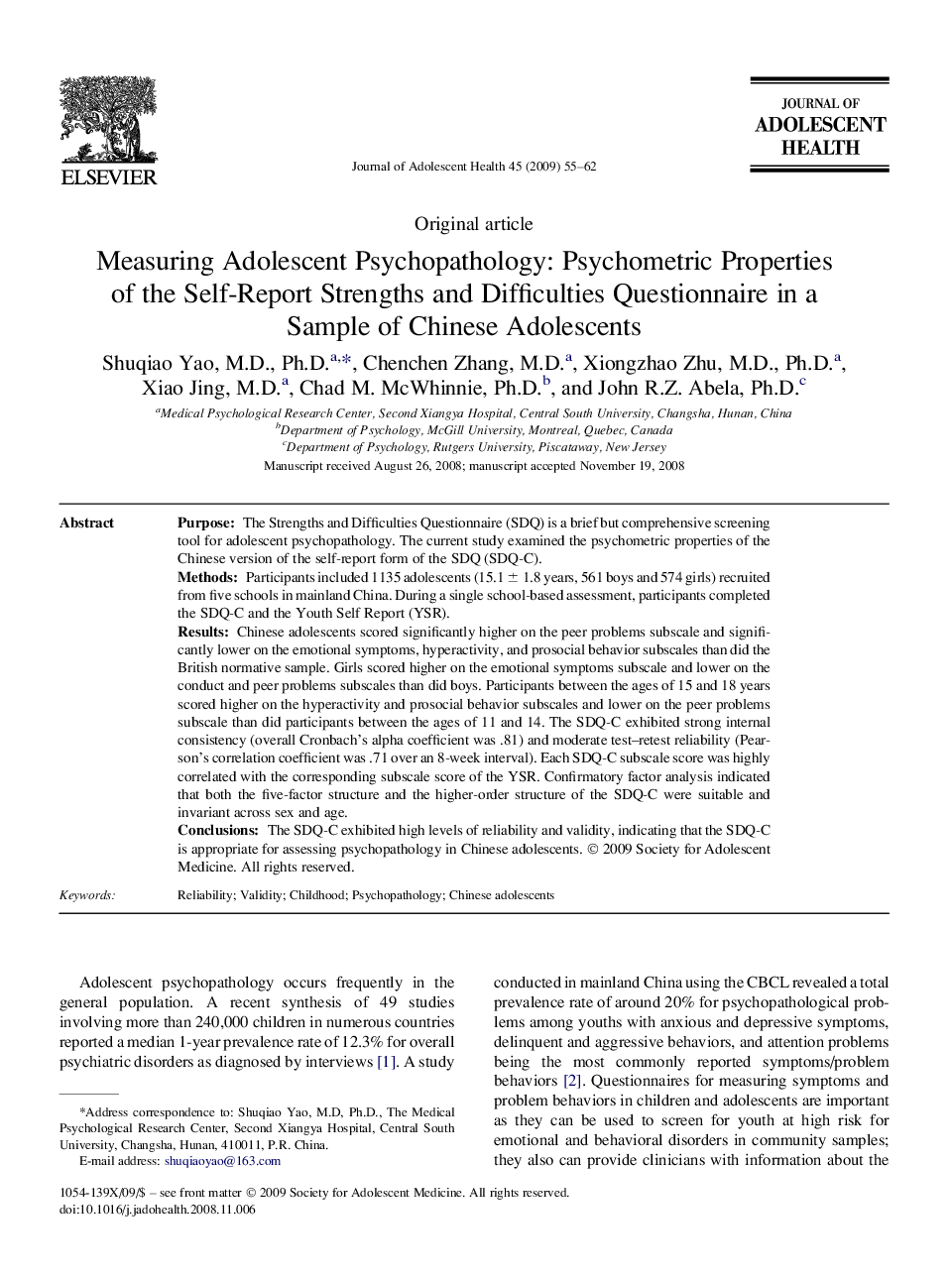| Article ID | Journal | Published Year | Pages | File Type |
|---|---|---|---|---|
| 1079484 | Journal of Adolescent Health | 2009 | 8 Pages |
PurposeThe Strengths and Difficulties Questionnaire (SDQ) is a brief but comprehensive screening tool for adolescent psychopathology. The current study examined the psychometric properties of the Chinese version of the self-report form of the SDQ (SDQ-C).MethodsParticipants included 1135 adolescents (15.1 ± 1.8 years, 561 boys and 574 girls) recruited from five schools in mainland China. During a single school-based assessment, participants completed the SDQ-C and the Youth Self Report (YSR).ResultsChinese adolescents scored significantly higher on the peer problems subscale and significantly lower on the emotional symptoms, hyperactivity, and prosocial behavior subscales than did the British normative sample. Girls scored higher on the emotional symptoms subscale and lower on the conduct and peer problems subscales than did boys. Participants between the ages of 15 and 18 years scored higher on the hyperactivity and prosocial behavior subscales and lower on the peer problems subscale than did participants between the ages of 11 and 14. The SDQ-C exhibited strong internal consistency (overall Cronbach's alpha coefficient was .81) and moderate test–retest reliability (Pearson's correlation coefficient was .71 over an 8-week interval). Each SDQ-C subscale score was highly correlated with the corresponding subscale score of the YSR. Confirmatory factor analysis indicated that both the five-factor structure and the higher-order structure of the SDQ-C were suitable and invariant across sex and age.ConclusionsThe SDQ-C exhibited high levels of reliability and validity, indicating that the SDQ-C is appropriate for assessing psychopathology in Chinese adolescents.
